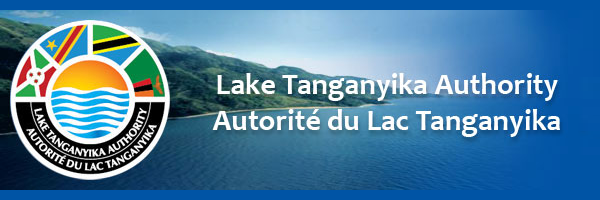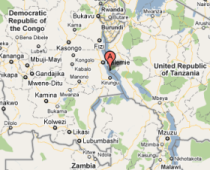LTA News Feed
- The National Action Plan for sustainable management of resources in Lake Tanganyika basin in Burundi was validated.
- Representatives of the Ministry of Water, Environment, Land and Urban Planning, the Ministry of Home Affairs, Ministry of Mines and Energy, Lake Tanganyika Authority, local environmental NGOs and some environmental development partners (UNDP, Global Environment Facility – GEF and UNOPS) validated, after some amendments, the document of National Action Plan (NAP) for Lake Tanganyika natural resources management.
- The Lake Tanganyika basin affected by impacts of climate changes
- Modifications related to climate changes could have increasing impacts on the aquatic and terrestrial ecosystems in Lake Tanganyika basin, note Gaspard Ntakimazi, Professor at the University of Burundi in the “National Action Plan (NAP) for implementing the Strategic Action Programme (SAP) for protecting the biodiversity and the sustainable management of natural resources in Lake Tanganyika basin”.
- 2nd Steering Committee Meeting - IRFS Programme from May 28, 2012 06:00 AM to May 29, 2012 04:00 PM — Pearl Beach Hotel, Mauritius,
- The Indian Ocean Commission through the SmartFish Programme (Implementation of Regional Fisheries Strategy of the Eastern and Southern Africa and Indian Ocean Region) will hold its second Steering Committee Meeting On May 28th and 29th, 2012.
- A new initiative for the Lake Tanganyika basin : the LT-WATSAN Programme
- Initied by UN-Habitat, the Lake Tanganyika - Water, Sanitation and Environmental Management Project (LT-WATSAN Project) will take full advantage of experiences and lessons learnt from Lake Victoria - WATSAN under UN-HABITAT, indicated Mr. Robert GOODWIN, Chief LV Section WATSAN / UN HABITAT.
- Invasive species and climate change: an agronomic perspective
- However, recent events on the global stage, particularly in regard to the number of food riots that occurred during 2008, even at a time of record harvests, have prompted additional interest in those factors, including invasive species, which could, through climatic uncertainty, alter food production.
- Insights into the evolution of freshwater sponges (Porifera: Demospongiae: Spongillina)
- Barcoding and phylogenetic data from Lake Tanganyika endemics indicate multiple invasions and unsettle existing taxonomy. Therefore, we reject the hypothesis of monophyly for the sponges from Lake Tanganyika and challenge existing higher taxonomic structure for freshwater sponges.
- Optimized extraction of daily bio-optical time series derived from MODIS/Aqua imagery for Lake Tanganyika, Africa
- Standard MODIS Aqua Ocean Color products were found to not provide a suitable calibration for high altitude lakes such as the Lake Tanganyika. Our results show that for the geographical, atmospheric and optical conditions of Lake Tanganyika: (i) a coastal aerosol model set with high relative humidity (90%) provides a suitable atmospheric correction; A comparison between surface chlorophyll-a concentrations estimated from field monitoring and from the MODIS based dataset shows that remote sensing allows improved detection of surface blooms in Lake Tanganyika.
- The physics of the warming of Lake Tanganyika by climate change
- Climate warming over the 20th century has increased the density stratification and stability of Lake Tanganyika, a deep rift valley lake. While lakes in general will increase heat outputs in a warming climate, heat outputs will increase more slowly in deeper lakes than in shallower lakes.
- Elusive Bururi Long-Fingered Frog Found After 62 Years
- ScienceDaily (Mar. 27, 2012) — Herpetologists from the California Academy of Sciences and University of Texas at El Paso discovered a single specimen of the Bururi long-fingered frog (Cardioglossa cyaneospila) during a research expedition to Burundi in December 2011. The frog was last seen by scientists in 1949 and was feared to be extinct after decades of turmoil in the tiny East African nation.
- Strategic financial planning for water and sanitation in Central Africa
- Investing in water supply and sanitation will have immense economic benefits for households, communities, countries and the world at large. Estimates from the OECD put these benefits emanating from, time savings, health care saving, and productivity savings (productive days of the workforce, school attendance etcetera) at about US$84 billion per year if the water and sanitation MDGs were met.
Document Actions


